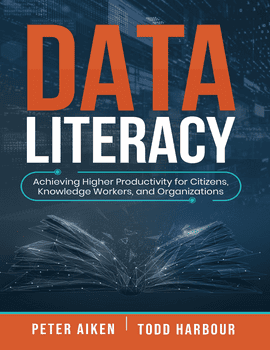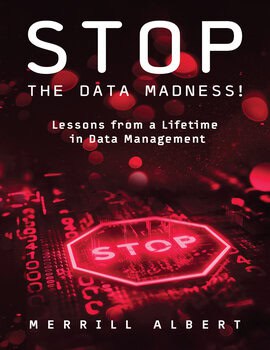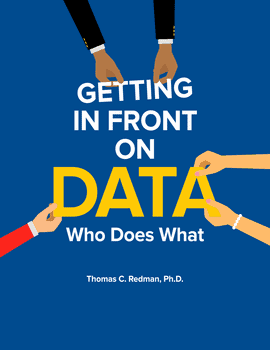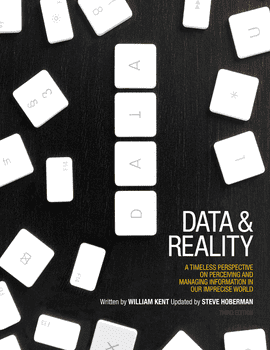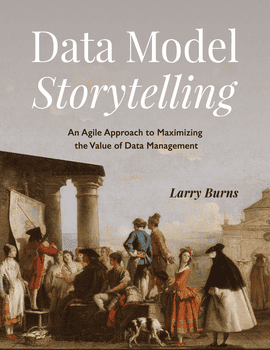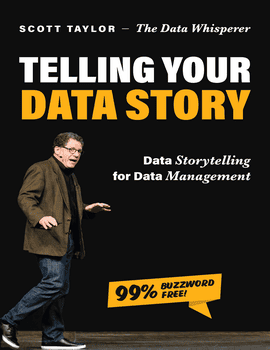Data Literacy
Data Literacy: Achieving Higher Productivity for Citizens, Knowledge Workers, and Organizations, by Peter Aiken and Todd Harbour
Do you know what a “PIDD” is? A PIDD is a Perpetual Involuntary Data Doner. Surveillance capitalists love PIDDs because PIDDs materially support the data extraction industry by unwittingly surrendering their personal information, paying for data transport and storage, and tolerating poor Internet/technology performance.
Topics
Chapter 1: Data Bootcamp
Defining data assets
Social media: Your data is someone else’s asset
Internet of Things
Chapter conclusions-Data lessons for adults & knowledge workers are foundational
Chapter 2: A Data Illiterate Society
The Pandemic illustrates the problems of a data illiterate society
Data literacy is a range (as opposed to a binary measure)
Citizen “Data Smarts” are required to interact with organizational data machines and (indirectly) with the data matrix
Chapter conclusions-We don’t do this well yet
Chapter 3: An Excess of Data
A representative experience— Awakening to different types of data problems in a crisis
Four basic data truths
Chapter conclusions-Data are drowning us
Chapter 4: The Current Approach Ain’t Cutting It!
Lack of progress towards citizen data literacy
Root cause analysis and insights
Evaluation of the current curriculum
What are the solutions?
Chapter conclusions-Data lessons on volume, educational effectiveness, and required effort
Chapter 5: Increasing Knowledge Worker Productivity
What is a knowledge worker?
How much can we increase KW productivity?
Requiring data acumen of knowledge workers
Data and technology used in decision-making
Chapter conclusions–Data lessons foundational to knowledge work
Chapter 6: Educating Citizens using the Digital Civics Framework
The data literacy scale and DCF actors
Digital civics attributes
Cross-level commonalities
Data conversations
Citizen data knowledge areas (literacy needs and responses)
Chapter conclusions–A problem well stated
Chapter 7: Mobile Data Spreader (MDS)
Mobile data spreader description
Pair each MDS with a responsible ADS
MDS data knowledge areas (needs & responses)
Chapter conclusions–Educating future citizens
Chapter 8: Adult Data Spreader (ADS)
Adult data spreader description
ADS data knowledge areas (needs & responses)
Chapter conclusions–Codifying adult data responsibilities
Chapter 9: Knowledge Worker (KW)
Knowledge worker description
Close the data literacy skills gap
KW data knowledge areas (needs & responses)
Chapter conclusions–Knowledge workers and data
Chapter 10: Data Teacher (DT)
Data teacher description
DT data knowledge areas (needs & responses)
Chapter conclusions–Why a new form of education is required
Chapter 11: Data Professional (DP)
Data professional description
DP data knowledge areas (needs & responses)
Chapter conclusions–Starting from the same sheet of music
Chapter 12: A 12-step Approach to Improving Organizational Data Literacy
How the steps are organized
Three steps comprising Level 1: Physiological—mobile data spreaders
Four steps comprising Level 2: Safety—adult data spreader
Two steps comprising Level 3: Love and belonging—KWs
One step comprises Level 4: Esteem~data teachers
Two steps comprising Level 5: Self actualized—data professionals
Chapter conclusions–Culture eats strategy
Chapter 13: The Data Doctrine® (DDv2)
A warning about data consulting
Data-centric Premise No. 1: Data programs driving IT programs
Data-centric Premise No. 2: Informed data investing over technology acquisition activities
Data-centric Premise No. 3: Value stable, shared organizational data over IT component evolution
Data-centric Premise No. 4: Value data reuse over new acquisition
The Data Doctrine at work as data programs support organizations
Creating your first lighthouse project
Chapter conclusions–Required objectivity
Chapter 14: Challenges to and Consequences of a Data Literate Citizenry
Barriers and challenges to data literacy
Visions of a data literate citizenry
Data literacy conclusions
Today, this quiet industry collects massive data about people to modify and control their societal behavior. Surveillance capitalists control behavior by exploiting people’s low data literacy. Three things increase the magnitude of the challenge:
- Data volume continues faster than we can process.
- Poor data interchange costs drain citizen and organizational resources and productivity.
- Society’s reliance on technologies has not materially addressed the gap.
Our Digital Civics Framework (DCF) presents a guide to increasing the data literacy of billions of citizens or at least those connected to the internet. We outline the levels and types of data knowledge that society needs and propose exercises that will help citizens interact productively within a data-driven society. Unfortunately, far too many PIDDs allow surveillance capitalists to monitor their data. This type of monitoring comes at an expense to individuals, our communities, and society writ large. Completing this material will equip readers with a shared understanding of society and the role data plays in it.
About Peter and Todd
Peter Aiken is acknowledged to be a top data management (DM) authority. As a practicing data manager, consultant, author, and researcher, he has been actively performing and studying DM for more than thirty years. His expertise has been sought by some of the world’s most important organizations, and his achievements have been recognized internationally. He has held leadership positions and consulted with more than 150 organizations in 27 countries across numerous industries, including intelligence, defense, banking, healthcare, telecommunications, and manufacturing. He is a sought-after keynote speaker and author of multiple publications, including his popular The Case for the Chief Data Officer and Monetizing Data Management, and he hosts the longest running and most successful webinar dedicated to data management. Peter is the Founding Director of Data Blueprint, a consulting firm that helps organizations leverage data for competitive advantage and operational efficiencies. He is also an Associate Professor of Information Systems at Virginia Commonwealth University (VCU), past President of the International Data Management Association (DAMA-I), and Associate Director of the MIT International Society of Chief Data Officers.
Todd Harbour is the Chief Data Officer (CDO) for New York State, where he orchestrates work to design and implement a data management regime. Todd’s work includes developing a data governance strategy, framework, and roadmap; defining a unified information architecture; realizing master data; coordinating data sharing; and establishing a state-wide data analytics community of practice. Prior to this role, Todd was a senior federal government official based in the Washington, D.C. metropolitan area. While there, he led work to establish data strategies, business frameworks, and data management platforms, which helped provide a reliable basis for answering questions from Congress and organizational leaders. Previously, Todd served as senior vice president at FGM Inc., a software and systems engineering corporation in Northern Virginia. In this position, Todd led federal and international practices, developed business strategies, negotiated with lenders and investors, captured new business, engaged employees with challenging opportunities, and achieved measurable progress on enterprise vision, strategic goals, and objectives. Todd paired closely with business partners, other corporate officers, and the Board of Directors, leading growth to exceed 500+ employees with an assessed market value of $175M+.
Faculty may request complimentary digital desk copies
Please complete all fields.
